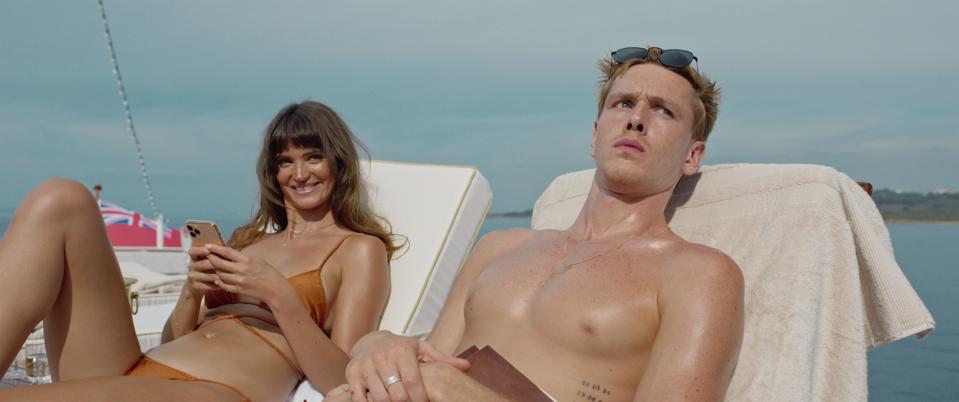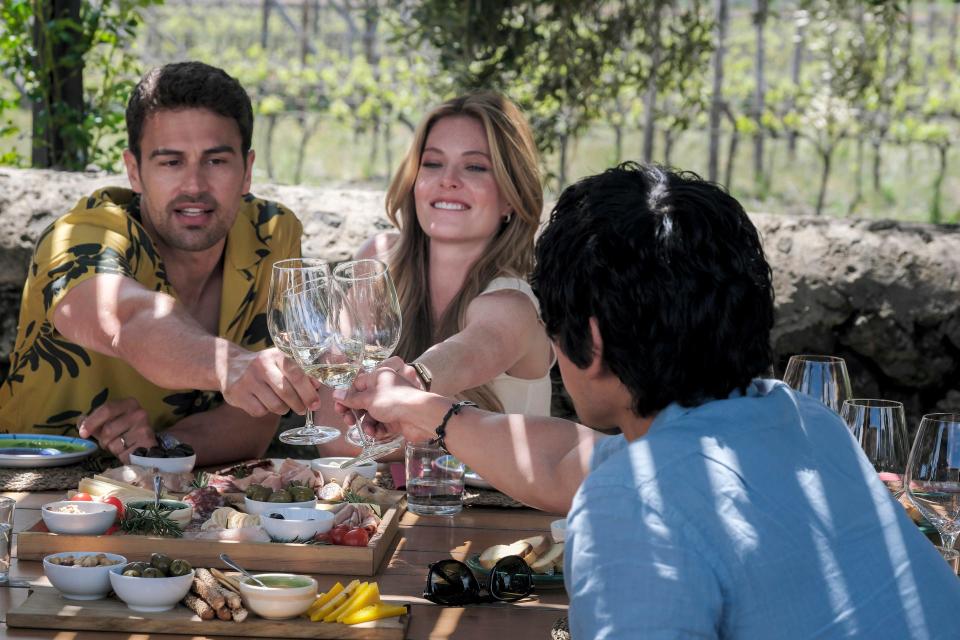Why we're seeing a new 'wave' of wealth satires, from 'White Lotus' to 'Triangle of Sadness'
Ruben Östlund doesn't want to "eat the rich." But he does like to laugh at them.
In "Triangle of Sadness" (in theaters now), the Swedish filmmaker takes wealth satire to borderline sadistic extremes, with a gross-out 15-minute sequence set on a luxury yacht. Due to a combination of turbulent weather and bad seafood, the affluent passengers gradually fall ill with explosive vomiting and diarrhea – falling down stairs and crashing into walls as they relieve themselves during the storm.
“I had a goal that (the scene) should be pushed so far that the audience at one point has to say, 'Please save them, they've had enough! Don't punish them anymore!' " Östlund says. "And then I go even 10 steps further."
Review: Wonderful 'White Lotus' is back for Season 2, and it's not a second too soon

"Triangle" is just one of several new films and TV shows taking aim at social discontent and the uber-wealthy this year. Apple TV+ comedy "Loot" stars Maya Rudolph as a tone-deaf billionaire who reinvents herself as a philanthropist, while "Knives Out" sequel "Glass Onion" (streaming on Netflix Dec. 23) features Edward Norton as an Elon Musk-style tech tycoon hosting a murder mystery party on his private island.
Dark comedy "The Menu" (in theaters now) sends up foodie culture at a remote island restaurant, where snooty diners become part of the evening's meal in unexpected ways. And HBO's Emmy-winning "The White Lotus" (Sundays, 9 EST/PST) returned in late October with more rich people behaving badly on holiday, swapping the first season's Hawaii locale for a picturesque Sicilian resort.
"Lotus" once again finds vacuous vacationers searching for connection as murder looms on the horizon. The seven-episode Season 2 tackles topics of power and toxic masculinity, and features an almost all-new cast (save for Jennifer Coolidge and Jon Gries).
'Glass Onion' review: New A-list whodunit is bigger, not better than masterful 'Knives Out'

Mike White (HBO’s “Enlightened”) created, wrote and directed the show. He lets viewers form their own opinions "about these characters and their attitudes, but then he often subverts that expectation," says Theo James, who plays finance bro Cam. "Wealth isn’t always black and white. These people are there and you’re partly repulsed by them, but then you see a part of yourself in them."
This searing type of social satire is hardly new: "The Exterminating Angel" (a 1962 film) and 1972's "The Ruling Class" were sendups of class dynamics. More recent examples include Jordan Peele's "Us" and Bong Joon-ho's "Parasite," which offer mordant commentary on privilege. But comedy skewering the upper class hits even harder in 2022, as the richest 10% of the world's population now owns 76% of the wealth, according to this year's World Inequality Report.
"These themes were explored in the past very nicely, but today it's really affecting people's state of mind," says Dolly de Leon, a Filipina actress who portrays a cleaning lady-turned-power player in "Triangle." "The gap between the rich and the poor is getting bigger. (Östlund) believes in an ideal society that everyone should be provided equal opportunity, but that's not the case."
Charlbi Dean: 'Triangle of Sadness' actor dies at 32 from 'unexpected' illness

"Triangle" follows a pair of models (Harris Dickinson and Charlbi Dean) who are sent on a free cruise, where they post selfies and rub shoulders with arms dealers and Russian oligarchs. Östlund, whose other satirical films include "Force Majeure" and "The Square," was inspired to write the movie after conversations with his partner, a fashion photographer. He was intrigued by the idea of "beauty as currency," and wanted to explore how Instagram influencers can use their looks to climb social ladders.
When you're "not separating private life and business, everything becomes a product that you're selling," Östlund says. Clothing, too, becomes a camouflage and "is so connected with hierarchies. Fashion brands are basically selling their product on (the concept) of herd behavior: We detect which social group we are connected to and then buy clothes in order to fit into that social group."

"Menu" similarly roasts a particular subset of the ultra-rich: fine diners. The comedy follows Margot (Anya Taylor-Joy), a young woman who accompanies her foodie boyfriend (Nicholas Hoult) to an exclusive gourmet restaurant where actors, critics, businessmen and baby boomers pay $1,250 per meal.
But as the night goes on, each lavish course becomes increasingly personal, as celebrity chef Slowik (Ralph Fiennes) puts his rich clientele on blast for financial fraud and destroying people's lives. He also refuses to offer bread – once thought of as food for the lower classes – and instead serves them a measly plate of dipping sauces.
"We were trying to go after the concept of entitlement, and wealthy people is a way into that," co-writer Seth Reiss says. With more platforms than ever to consume content, "it's almost as if people go through it so quickly that they no longer appreciate it. And imagine the content you put out is food – you put so much work into it and then they just eat it as fast as possible."
The movie has "tangential thematic similarities" to some of the other wealth satires being released right now, adds co-writer Will Tracy, although they wrote the first draft four years ago.
"It almost feels like it's part of a wave, or that we are responding to (that trend)," Tracy says. "We weren't, but it's interesting to see the overlap. There is something to be said about capitalism and this kind of cultural dissatisfaction: Everyone is starved for something more."
Contributing: Marco della Cava
This article originally appeared on USA TODAY: 'White Lotus,' 'Triangle of Sadness' are brutal satires of the wealthy

 Yahoo Movies
Yahoo Movies 
